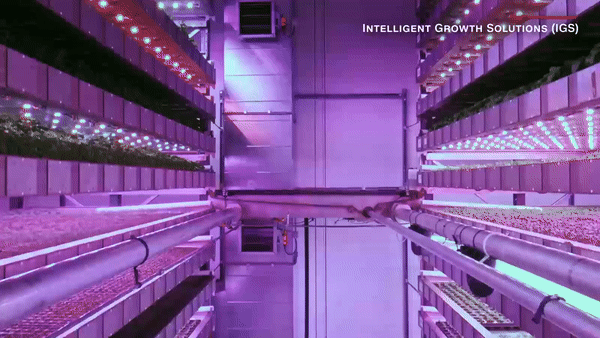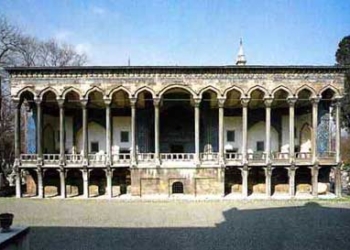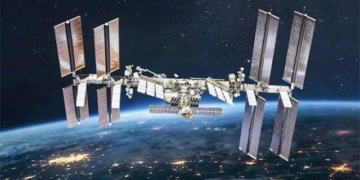In 2022, Dubai launched a farm covering an area of 31,000m2 within the grounds of the Al Maktoum International Airport in Dubai. Here, vegetable growing trays are stacked vertically to create a vertical farm that produces greens with minimal water and soil. To date, this farm yields over one million kilograms of high-quality greens annually.
However, this title is soon to be challenged. Across the city, at a location known as the Food Technology Valley, preparations are underway to launch a new facility named GigaFarm, which spans up to 83,612m2, nearly three times the size of the first vegetable farm. The crops will be grown in rows reaching heights of up to 12 meters.

This farm is producing millions of kilograms of vegetables each year.
GigaFarm is overseen by a company named ReFarm, established by the UAE. Not only is it significantly larger than other vertical farms, but GigaFarm also operates with a unique approach.
The United Nations reports that food production accounts for one-third of global greenhouse gas emissions. To make agriculture more sustainable, Oliver Christof, CEO of Christof Global Impact, the company behind ReFarm, stated that GigaFarm utilizes technology to convert waste such as wastewater and surplus food into agricultural products like compost, animal feed, clean water, and energy.
By bringing farms closer to consumers and employing more efficient production methods to reduce fertilizer use, this system promises to cut carbon emissions from food production. The productivity here could reach up to 3 million kilograms of greens each year, equivalent to 1% of the UAE’s food imports.
The vertical farming solution of GigaFarm is provided by IGS, a company based in Scotland. This system resembles multi-story parking lots, but instead of vehicles, it hosts plants. The growing environment is carefully controlled while water and fertilizer are meticulously calculated for maximum efficiency.
Utilizing a hydroponic system, each planting tray is lined with organic fertilizer or coconut coir instead of conventional soil. A specialized lighting system provides light for the plants to grow as they would under sunlight. Sensors and cameras are employed to monitor plant development. Vertical farming systems can automatically manage light, temperature, humidity, water, and nutrients.
This vertical farming method accelerates plant growth, reduces water usage by 98%, and occupies less space. Furthermore, farms can be established in degraded lands unsuitable for traditional agriculture or in areas constrained by seasons and climate.
However, these vertical farms also have weaknesses that may make them suitable only for the wealthy. The initial investment cost is high, operational costs are substantial, and electricity consumption is significant. Many businesses following this model have gone bankrupt due to an inability to balance costs.
To address these challenges, Dubai aims to harness renewable energy and build a circular economy model to convert waste from other processes into agricultural materials. Energy for the farm is provided through the incineration of solid waste, while water is sourced from a waste treatment technology based on insects.
Specifically, black soldier flies will be raised to consume food waste. At the end of their growth cycle, they will be transformed into high-nutrient animal feed. GigaFarm plans to recycle 50,000 tons of surplus food annually, and the amount of water generated from this process will be sufficient to operate the vertical farms.





















































